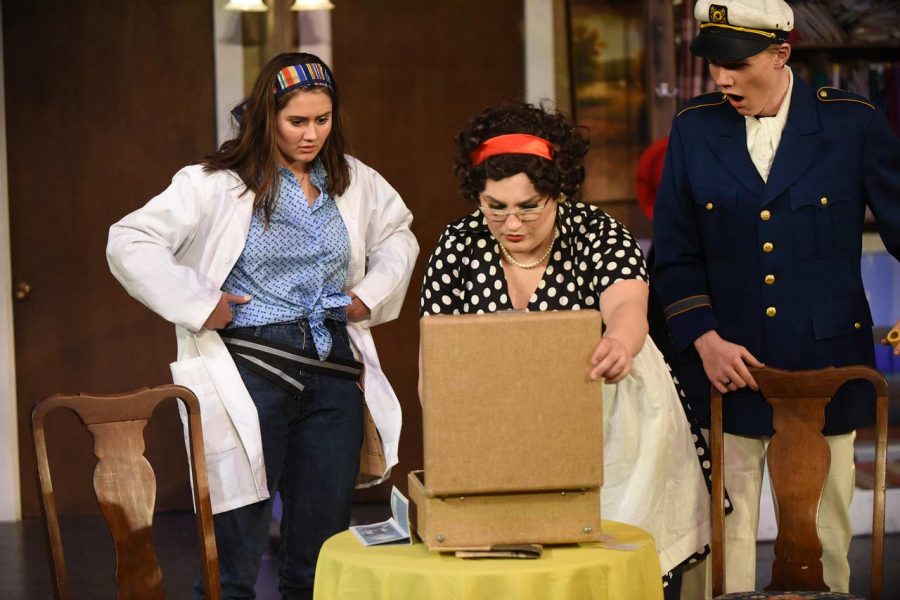Drama department performs “Strange Boarders”
The Theatre Department has also performed ‘Cinderella’, ‘Fractured Fairytales’ and ‘Cyrano de Bergerac’ this year. The last and upcoming play will be ‘Onward and Upward’, taking place in late May.
The Spring Show is a BC tradition that promotes students’ skills in acting and building. Students from every grade are encouraged to audition for the 3 Act Play in March, and the chosen cast performs around late April/early May. This year, the theatre department decided to perform the comedy thriller “Strange Boarders.”
In this play, a disorderly lady runs a boarding house; she has trouble remembering to collect money from the renters, and she is behind on money, so she tries to look for more people to rent rooms in her house. Essentially, a couple of mischievous people become interested in the advertisement, leading to shenanigans that ensue.
While the production is spectacular to watch, the cast and crew work very hard to maximize their performance, pushing through a rigorous schedule. Katie Delwiche (‘19), Costumes Director, expounds on this: “Mr. Pronley, the director of Strange Boarders, began rehearsals right after auditions. The play has 3 acts, which required additional time for the cast to learn their parts as well as blocking and timing, which is very important in a comedy. The set was also built very quickly, and allowed the cast to rehearse on stage well before opening night.”
Now, you might be thinking, what’s the difference between the Spring Show and bigger productions like the Musical, in terms of technicalities? It may seem like there are minor differences such as authoritative figures and amount of participants. Delwiche clarifies that “the play is very different from the musical because it’s on a much smaller scale, and therefore cast and crew are able to have more input on the show, from organizing ticket sales, costuming, to designing the lighting and sound”.
There were many positive outcomes and experiences from participating in the play. Delwiche adds that “the best part about this play was the camaraderie between the entire cast and crew. Most of us had worked together before, so there was a familiarity between everyone. We all enjoyed working together under the guidance of Mr. Pronley.” Of course, based on the amount of time and effort that cast and crew members put into the show, it’s easy to believe that they are such a tightly-knit group!
Overall, theatre provides many opportunities to stand out and increase communication and work skills. It’s exciting to wonder what the theatre department is planning for next year!






